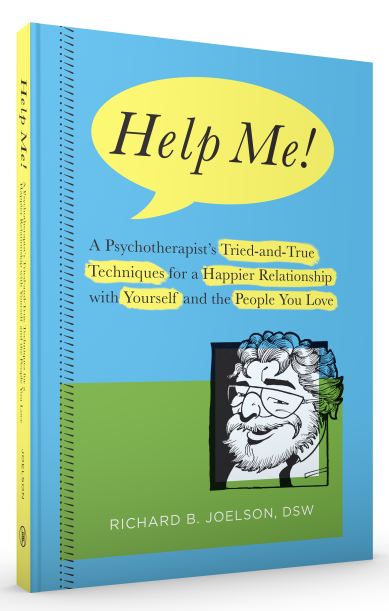
Source: Tashatuvango/Shutterstock
What happens when our attempts to adapt to a problem intensify it rather than ease or resolve it?
In the course of evolution, all species have developed various means and mechanisms to adapt to the conditions that confront them. Some butterflies, for example, assume a protective coloring whereby they so simulate the appearance of the surface on which they rest that they escape detection by their enemies. Certain bird species, unable to find adequate food sources in winter, are able to shrink their stomachs in order to avoid starvation until the spring when food supplies once more become easily available.
Since adaptation is the very essence of life, it is not strange that man, as the most highly advanced species, has developed not only anatomical adjustments, which provide physiological protection in respect to the environment, but also psychological devices, which provide assistance in dealing with emotional needs and life’s stresses. These devices help to meet such needs as those for affection, personal security, personal values, and defense against anxiety.
Healthy or “good” adaptation might be exemplified by the person who appropriately adjusts his or her behavior to the requirements and expectations of a new supervisor in the workplace, or by the person who becomes physically disabled and develops new ways of coping and compensating for the loss of a completely healthy body. Another example of “good” or healthy adaptation is the person who suffers the loss of a spouse and eventually adjusts in ways that reflect resilience and excellent coping skills, rather than sinking into extended and disabling depression and despair.
Difficulties arise when efforts to adapt to a new or changed life situation serve to intensify a problem rather than to ease or resolve it. This may lead to what is known as maladapting. There are times when the challenge confronting someone may be to change an external condition or circumstance, rather than adapt to it. In cases like these, “adapting” may actually lead to negative consequences. A woman married to a man who frequently beats her is not someone we want to see adapt to her situation by finding ways to tolerate the abuse and continue living life as a battered wife, for example. Years ago, a patient of mine and several of her female colleagues were being subjected to serious sexual harassment in their workplace. The women developed an informal group that met regularly to discuss and “cope” with the situation they were suffering through together. While this initially appeared to be a good example of adapting to a terrible condition at the office, it turned out to be maladaptive, instead. What these women realized was that by meeting and sharing their common experiences of being sexually harassed by the men in the office, they were comforting each other and learning to live with (i.e. maladapting to) an unacceptable situation. However, they were doing nothing to seek change and put a stop to the horrible conditions they were tolerating and therefore allowing to continue.
There are times when circumstances or conditions in one’s life are intolerable and, therefore, not something to which one should adapt. Rather than maladapting by adjusting, tolerating, or enduring unacceptable circumstances or conditions, healthy adapting is sometimes best achieved by changing something.
